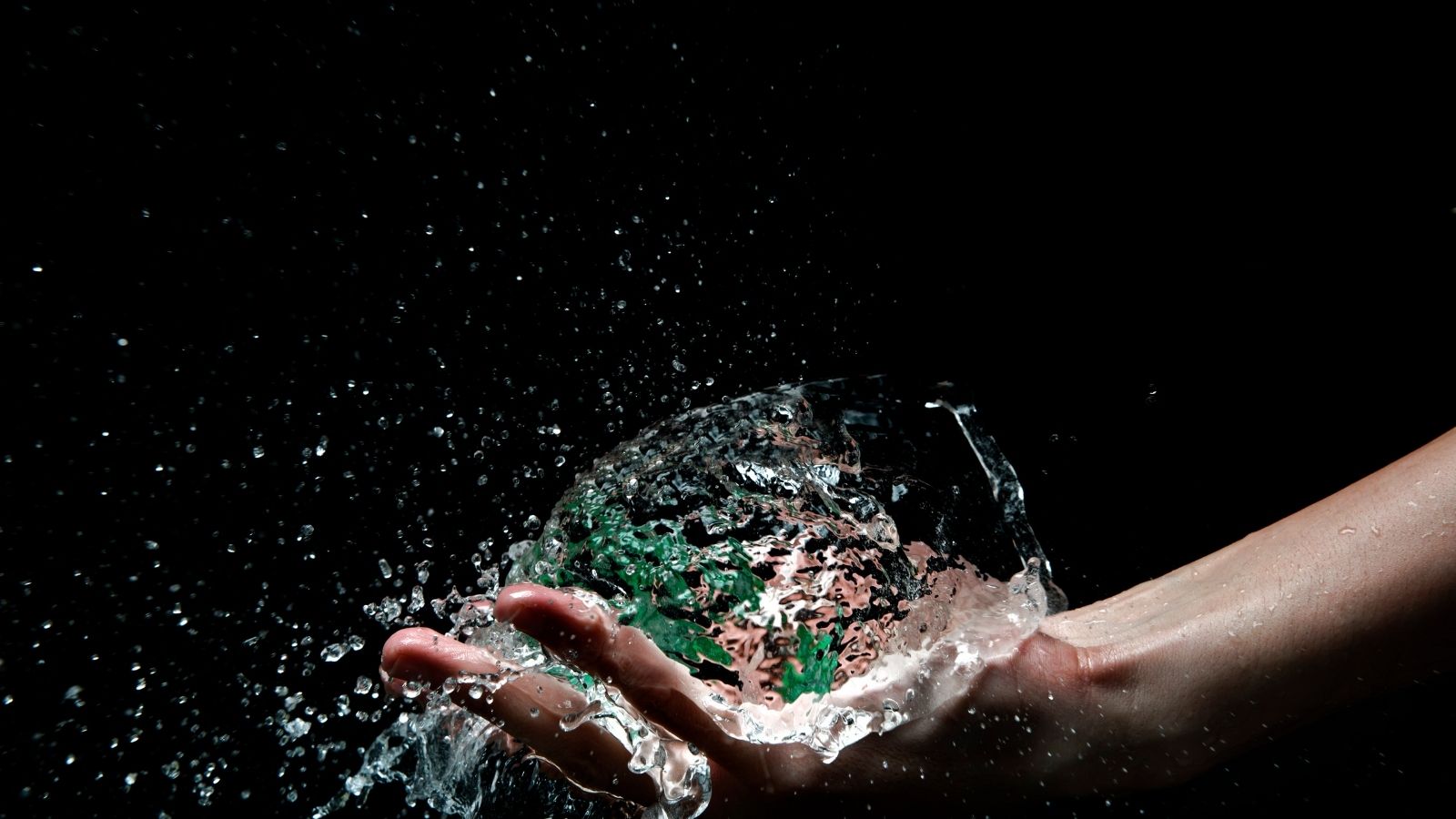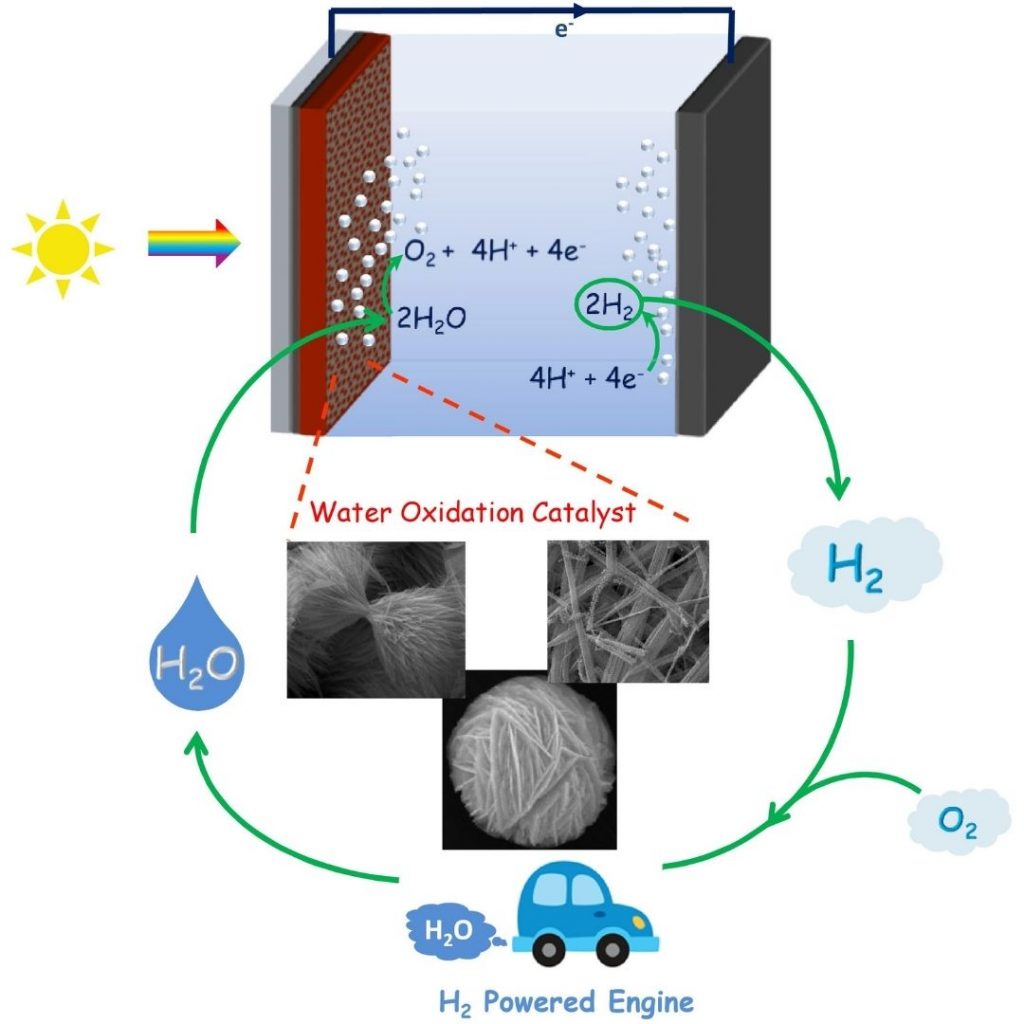
Water Splitting Catalysis

Water Splitting Catalysis
The demand on abundant, renewable, cheap, clean and safe energy has recently been drastically increased due to the depletion of fossil fuels and environmental concerns associate with their use. Hydrogen, as an energy carrier, is outshining alternative to fossil fuels and other precarious sources such as nuclear energy. It serves the possibility to be obtained from readily available, abundant and renewable energy sources such as water. Therefore, splitting water to generate molecular hydrogen that is defined as a “sustainable fuel” of the future, has become focus of increasing attention and very active research area.
The objective of our research is to design new heterogeneous catalysts for splitting water, synthesize and characterize them, and finally investigate their catalytic efficiencies with electrochemical methods.
Our Articles
- Hierarchical nanowire and nanoplate -assembled NiCo2O4-NiO biphasic microspheres as effective electrocatalysts for oxygen evolution reaction,
A. Cetin, E. N. Esenturk, Materials Today Chemistry,2019
https://doi.org/10.1016/j.mtchem.2019.100215 - Nanowires assembled from iron manganite nanoparticles: Synthesis, characterization, and investigation of electrocatalytic properties for water oxidation reaction,
A. Cetin, A. M. Onal, E. N. Esenturk, Journal of Materials Research, 2019, 34, 3231https://doi.org/10.1557/jmr.2019.215 - Chromium substituted iron oxide nanowires as affordable electrocatalysts for oxygen evolution reaction,
S. Kocabas, A. Cetin, A. M. Onal, E. N. Esenturk, Journal of Nanoparticle Research,2019, 21, 143
https://doi.org/10.1007/s11051-019-4591-5 - Magnesium substituted cobalt spinel nanostructures for electrocatalytic water oxidation,
E. Ekebas, A. Cetin, A. M. Onal, E. N. Esenturk, Journal of Applied Electrochemistry,2019, 49, 315
https://doi.org/10.1007/s10800-018-01285-9
